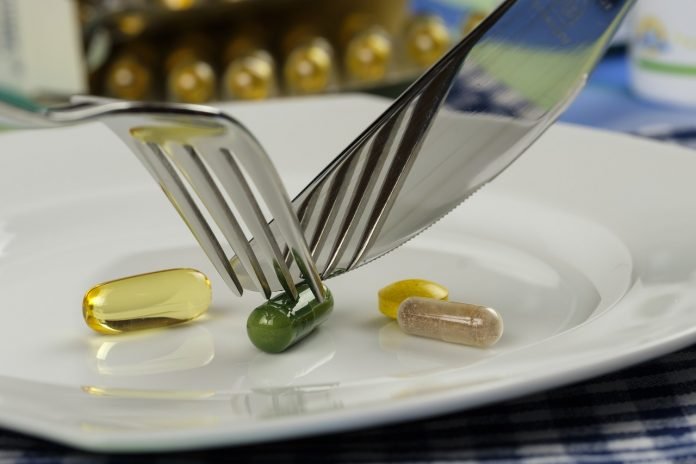
In a recent study, researchers found that common herbal and dietary supplements for weight loss and building muscles may harm liver health.
The findings suggest that people should be cautious about taking supplements to protect their liver.
The study was done by two hepatologists from the University of Michigan.
Many people use over-the-counter supplements to reduce body weight or improve their energy and performance levels.
But the vast majority of herbal and dietary supplements never undergo formal efficacy or safety tests.
Their manufacturing and production are not closely regulated by the Food and Drug Administration.
In the study, the team explored several popular over-the-counter supplements and their links to liver injury.
They found many types of liver injury could be caused by consuming supplements, such as hepatotoxicity, or chemically induced liver damage.
For example, most bodybuilding supplements causing liver injury appear to contain androgenic anabolic steroids, which are synthetic derivatives of testosterone.
Over the past 20 years, there has been a strong increase in the incidence of liver injury related to the illicit use of AAS.
AAS may lead to liver damage such as severe cholestatic hepatitis. The disease can take months to resolve.
In addition, using supplements to enhance energy, increase performance and facilitate weight loss could increase the risk of liver damage.
The team also found that some most common non-bodybuilding supplements could cause hepatotoxicity.
These supplements include green tea extract and multi-ingredient nutritional supplements that contain both botanicals and other compounds.
Green tea extract, or GTE, is derived from unfermented leaves of the Chinese tea tree, Camellia sinensis.
Several animal studies have shown the hepatotoxic (and possibly deadly) potential of GTE.
High levels of GTE in the body could lead to elevated aminotransferase (enzymes) in mice and reduce their survival rates.
Another recent study showed that patients who took GTE-containing Slimquick weight-loss products suffered hepatocellular injury and some needed a liver transplant.
The team suggests that future work needs to help build standardized chemical analyses and product manufacturing guidelines for dietary supplements.
Without regulations like that, taking supplements carelessly may bring health risks.
One study author is Robert Fontana, M.D.
The study is published in Seminars in Liver Disease.
Copyright © 2019 Knowridge Science Report. All rights reserved.



